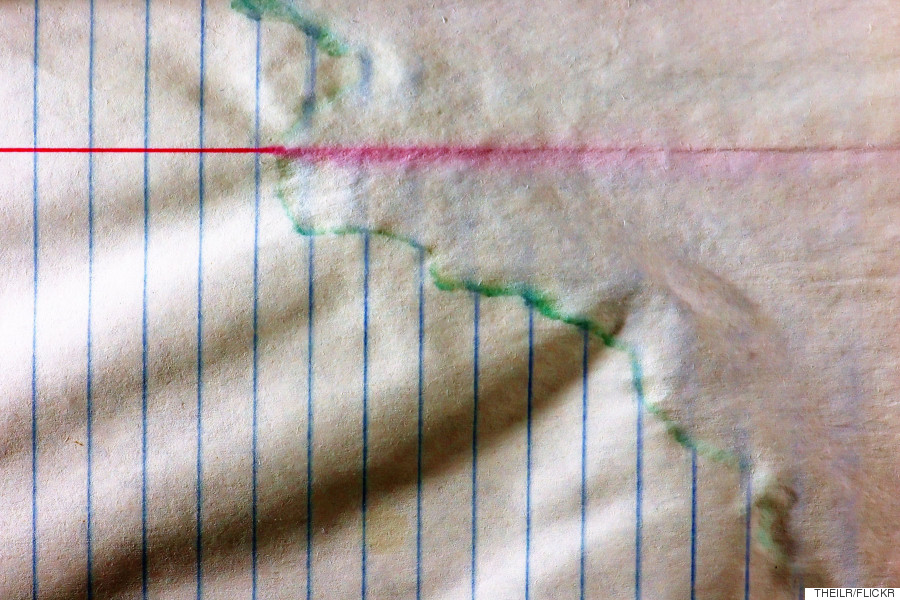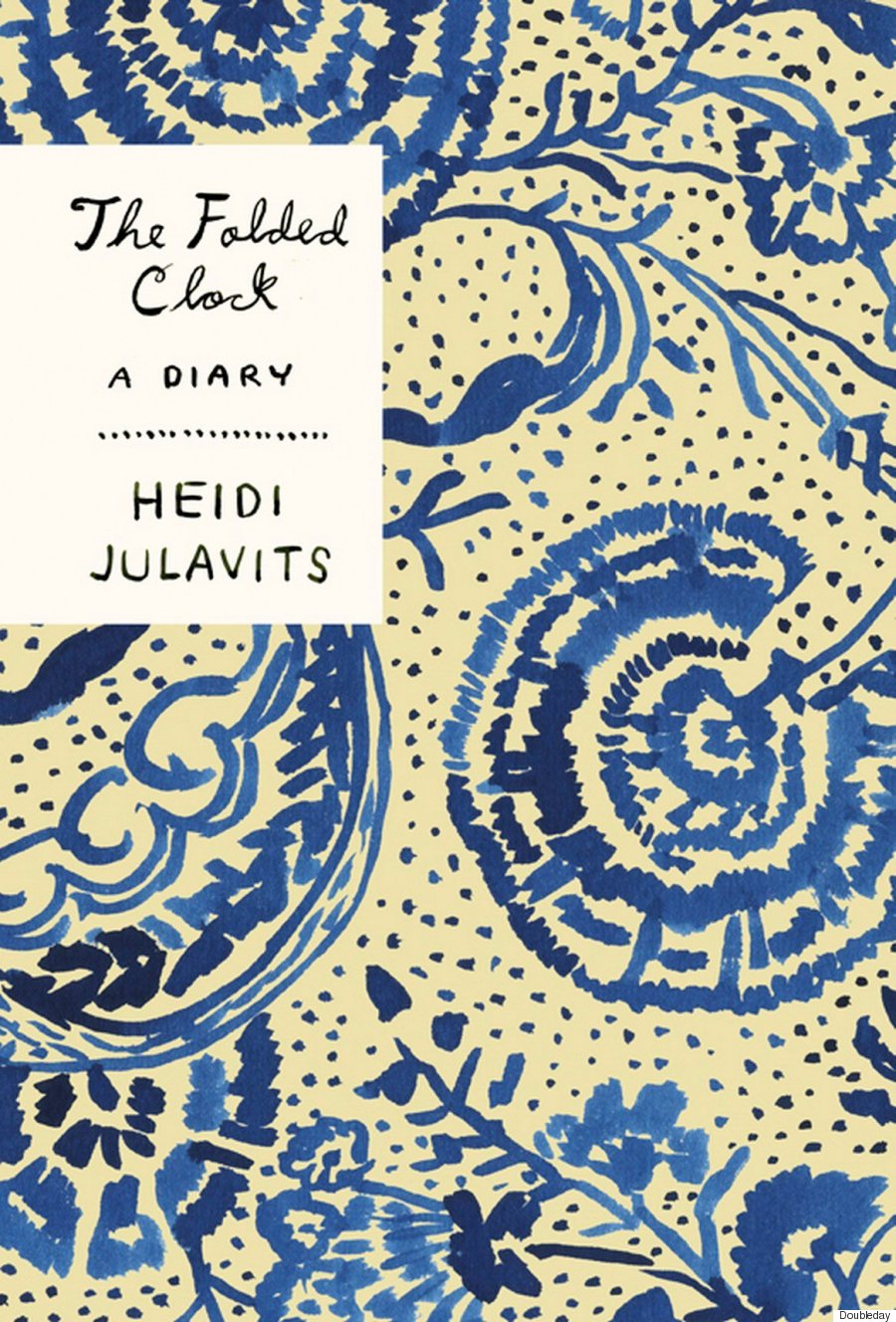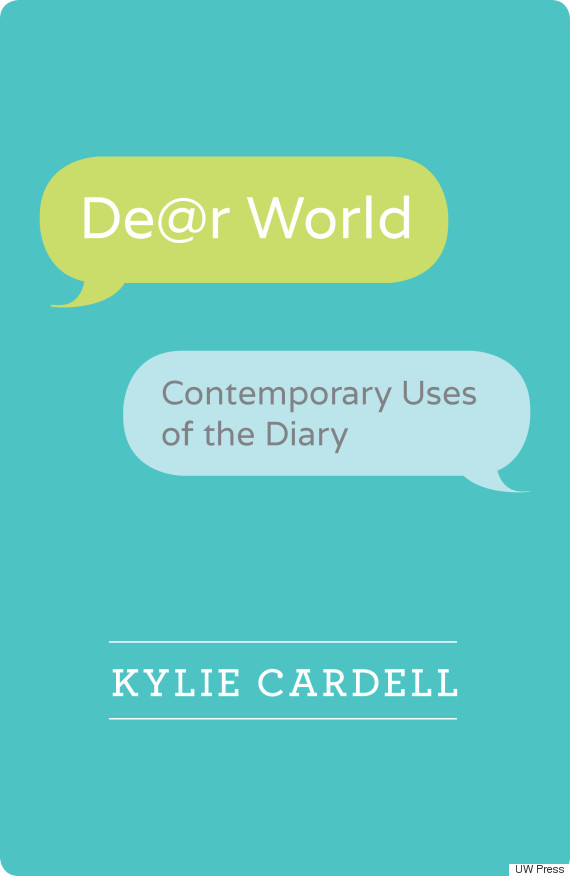
Heidi Julavits felt trapped. While vacationing in Germany with a friend, she reluctantly set out on a drive up a narrow, icy road. The further they travelled, the steeper and riskier the climb became. Terrified by her inability to change course -- the road had shrunken to the narrow width of the car -- she panicked. The potentials of the day had suddenly been reduced to a binary fate: they’d make it to their destination, or they wouldn’t. As soon as she was able to turn around, thanks to a widening near a tunnel, she did. In her new book, The Folded Clock: A Diary, she likens this incident to the experience of novel writing, an act she finds suffocating. She writes:
“I imagine a fictional scenario and so quickly the march of consequence takes over. Things happen and so other things must happen. I spend so much time working in the guts of this machine I feel less like a writer and more like the engineer of a high-performance vehicle. I am stuck perfecting the mechanics of happenings and coincidence. This is how plots take shape and achieve viability. [...] I would like to learn other means.”
So, rather than penning another novel (Julavits has written two of them), she began recording her daily actions and thoughts, allowing them space to roam around, to latch onto earlier memories and musings. In short: she wrote a diary.
She’s among a slew of writers abandoning the strictures of fiction for more personal, meandering narratives. Be it a novel-from-life (Sheila Heti’s How Should a Person Be?), a collection of confessional essays (Leslie Jamison’s The Empathy Exams), or an autobiographical series (Karl Ove Knausgård's My Struggle), the books that are shaking up conventions, and arguably reflecting contemporary life most accurately, are those that infuse so-called more literary philosophical observations with the banality of the day-to-day.
But can these works -- most of them written with some knowledge that they will eventually be published -- be classified as diaries? And what, if anything, distinguishes them from the confessional writing happening en masse on Twitter?
That Julavits chooses “a diary” as the subtitle for her work is telling of the increasingly murky boundary between personal life-logging and art produced for public consumption. So what, exactly, does diary-keeping mean in a time when over-sharing has become not only acceptable but expected? When live-tweeting our woes, and reading the daily concerns of others in real time, are as much a part of our sensory intake as listening to music or watching a show?

Today I Ate Fish: The Diary’s Dull History
The reasons for keeping a diary are many: it’s therapeutic and can act as a reliable line of communication between us and our former selves -- a way of chronicling our lives sans filter, as Joan Didion sagely observes in “On Keeping a Notebook.” If the diary-keeper is to log her thoughts honestly, though, there’s bound to be some mundane, self-indulgent rambling involved. This is true even of the most historically lauded diaries.
Take that of Samuel Pepys, a civil servant living in London in 1660, whose entries are valued for the details they contain surrounding the reign of the Cromwells and the Restoration of the British monarchy. Though the period is likely to appeal to history buffs, the entries themselves are painfully dull. Mostly, he logs his meals. In one entry he writes, “They brought us also some caveare, which I attempted to order, but all to no purpose, for they had neither given it salt enough, nor are the seedes of the roe broke, but are all in berryes.”
He goes on to describe the “badness of [his] hat.”
Though this diary was likely a pleasure for Pepys to keep and reflect on –- he was at it for over ten years –- it’s a slog of a read for anyone not interested in the heyday of the British Commonwealth. There’s an awing gap between the personal and the social value of a diary. The social value, according to Kylie Cardell, author of De@r World: Contemporary Uses of the Diary, is “as a document written in media res.” It’s a way of experiencing firsthand an event or period we can’t quite envision when we look at it from the bird’s eye view of history books.
Think of the diaries we uphold as excellent: Anne Frank’s, of course, but also Helen Keller’s and Sei Shonagon’s -- those whose firsthand observations fall far outside our personal realm of experience. To read their accounts of war or illness is to insert ourselves into the throes of travail. To take in what these diarists did or thought about each day is to connect with them on a more human level, and to understand history in a way that exists beyond the clean, chronological timelines we use to make sense of an event's importance.
Julavits cites one such diary as a source of inspiration for her book. Marie Illarionova Vassiltchikov’s Berlin Diaries 1940-1945, penned by a woman who lived in Germany during the bombing of Berlin, and was loosely involved in the July 20 Plot. Because she knew of some details surrounding an attempt to assassinate Hitler, she felt it necessary to exclude factual details from her writings, instead tethering her story to her own wavering emotions. Due to the author’s fear-induced restrictions, the diary had to be guarded carefully, and literally without a plot.
When asked whether she believed such thorough yet private observations like these still exist today, Julavits paused before answering: “You know… I don’t know.”

Diarist and fish eater Samuel Pepys
Today I Went Viral: The Diary’s Role Online
Like any good diary, Julavits’s book begins with a warning about the personal nature of its contents: “This book is an accounting of two years of my life. I have altered identifying characteristics to protect people’s privacy.” This forward is no cumbersome lock and key -- The Folded Clock can be found on shelves of readers who are strangers to the author -- but it does highlight the notion that in spite of the proliferation of public, confessional writing, we still think of diaries as a separate, quieter and more intimate form of self-expression.
Ostensibly, what makes a diary a diary, and not, say, a note, or a letter, is its function as a vault for our unfiltered, secret musings. But, as Susan Sontag notes in Reborn: Journals and Notebooks, “One of the main (social) functions of a diary is to be read [...] by other people, the people (like parents + lovers) about whom one has been cruelly honest only in the journal.”
Kylie Cardell echoed this sentiment in De@r World: “The perceived ‘privacy’ of the diary is less about its status as withheld –- as unpublished, kept under a pillow […] than its relation to uncensored and unmediated self-narration.”
On some level, when we vent, we want to be heard -- if only by our future selves. Why else would we choose such a permanent format for sorting out our thoughts? This may explain journaling’s evolution from guarded confessions to blunt, public blogging. Julavits agrees. When she began compiling entries for The Folded Clock, she had no intention of publishing them in a sleek, bound book, but did hope to share them with her children one day.
In spite of our apparent willingness to share, the first online diaries still featured metaphorical locks. LiveJournal, Xanga and other early online journals allow users to password-protect individual entries, or entire pages. But, in the last four years alone, there’s been a six percent increase in public LiveJournal accounts, and a similar decrease in customized accounts -– for which users can manage the privacy of individual entries. In the past fifteen years, the blog's relative number of private account holders has decreased by 21 percent. The company describes itself in its Twitter bio as “blurring the lines between blogging and social networking... since ’99,” apparently capitalizing on the shift we’ve undergone from squirreling away our secrets to announcing them proudly.
It’s clear that sharing our quotidian wants and happenings has become a rampant pastime, regardless of whether they’re password protected or trumpeted on Twitter. As Jenna Wortham observed in a New York Times article about the surfacing scores of dull Vine videos, “A cynic might dismiss all this obsessive self-documentation as evidence of generational narcissism.” But there’s something liberating -- even artistic -- about the raw immediacy of confession. Cardell’s observation that a diary is valuable as a document written in media res applies not only to historical musings, but to present ones, too.

Today I Made Art: The Diary As An Alternative To Novels
Of course, the diary’s value as a tool that can zero in on a single moment in the tidal wave of history -- or a strong voice among the social media deluge -- becomes less intriguing when said moments are painfully shallow and therefore banal. There’s nothing intimate about a log of a diarist’s food intake or outfit choices. But Julavits’s diary -- and those of other successful confessional writers -- uses the dailiness of these observations as a jumping-off point to examine her life sans-plot.
When she began accruing the entries that would become The Folded Clock, Julavits gave herself a single rule: Every piece would begin with the phrase, “Today, I...,” thereby circumventing a story arc that would thread the book together in the neat, chronological manner so much fiction is characterized by. “It seems to suggest that what would follow would be really, really circumscribed by the facts of those two words,” Julavits said. “In fact, it became this permission to go anywhere in time -- it was like opening up a portal.”
The result is what Julian Barnes -- who Julavits quotes at length in her book -- would call episodicism. In an essay of art criticism, he writes, “Episodicists see and feel little connection between the different parts of their life, [and] have a more fragmentary sense of life.” He pits the mode of living against “narrativism” –- that is, seeking a plot or cohesive story that ties everything together neatly. “Narrativists,” Barnes writes, “tend to find episodicists selfish and irresponsible.”
In other words, those of us who prefer to see our lives, and the lives of others, as stories full of repetition, connection and meaning, might look down on more confessional, in-the-moment mediums, such as diaries. Cardell backs this claim in the introduction to her book: “Scandalous, sordid, unmediated, associated with 'unprofessional' writers or adolescent girls, the diary is a genre desired as much for its promise of rawness and unself-conciousness as it has also been derided for excessive interiority [and] solipsism.”
But in going public the diary has become much more than a therapeutic act of self-reflection, and those steeped in the form defend it as a viable means of connecting with others and creating art, not just a trove of crush-related tirades. Julavits says when she began writing Clock, she had “this residual hesitation regarding the use of a diary as a place where a woman talks about her love life.” She even omitted her husband from the book entirely until she realized the choice was dishonest.
Similarly, personal essayist Leslie Jamison writes of the first story she published: “The female narrator I’d be depicting in my story -- a woman consumed by self-pity, drowning her sorrows in drink, engaged in reckless sexual self-destruction, obsessed with the man who’d left her -- didn’t seem like a particularly appealing or empowered sort of woman to think about or be. And yet, she was me.”
To write about the ordinariness of pain may seem like a story not worth telling, but increasingly -- and with the unfortunately needed help of literary male writers such as Karl Ove Knausgård jumping on the bandwagon -- it’s become an accepted art form.
It’s a shift we should be thankful for. Sure, changing the privacy settings on our once-discreet musings could be seen as narcissistic -- a strategic move in a quest for validation. And keeping a public inventory of our daily happenings might be a yawn for readers. But it’s something else, too. When such observations are compiled into a work of art, they become an honest reflection on how we absorb and produce information.
When asked why she wanted to write a plotless story -- a diary -- Julavits said it felt true to how we live. “I do feel like we move through space and information differently now,” she said. “We do it every day. You’re linking. There’s a link. Everything has a link. There’s a link buried in whatever you’ve read. Things suddenly go off in these unexpected zig-zags through virtual spaces, which are kind of story spaces that you create for yourself as you navigate. There’s no plot to that. There is a type of linkage, but it’s a different type of linkage. That’s what I was trying to capture, or come to terms with.”
CLARIFICATION: An earlier version of this article failed to acknowledge Samuel Pepys's role as a civil servant.
